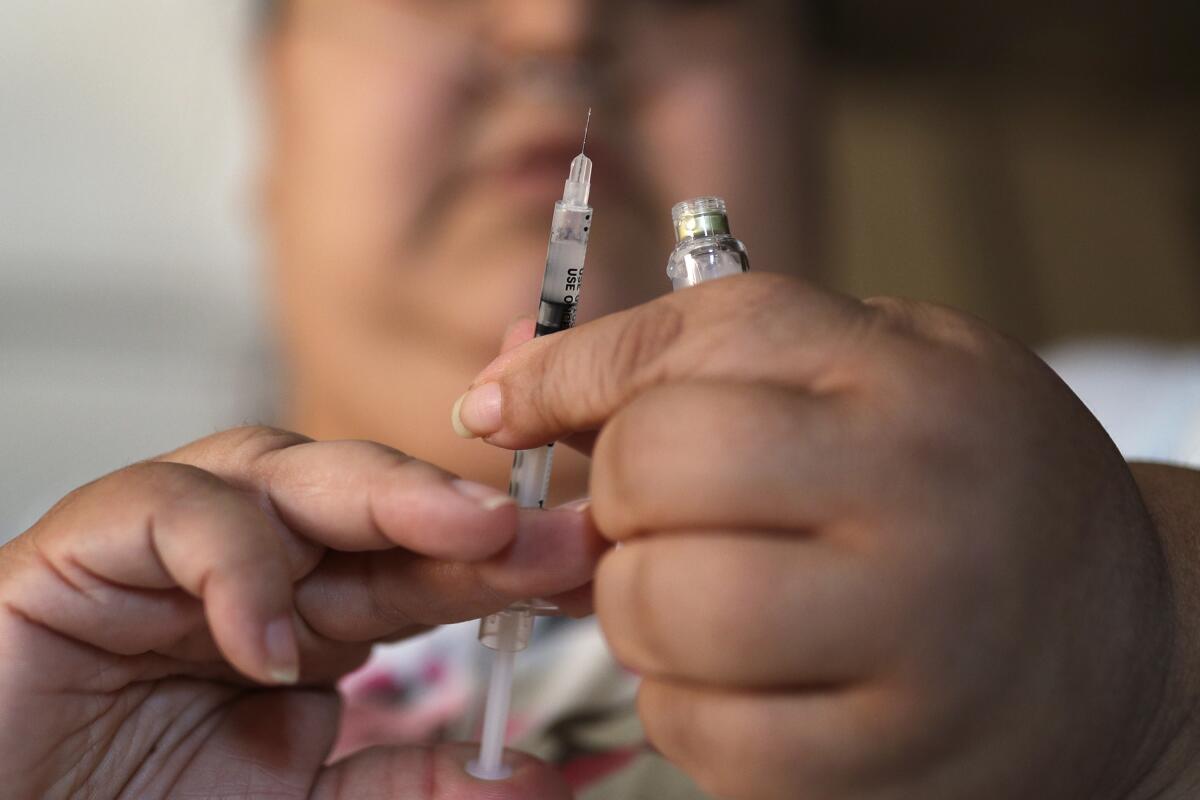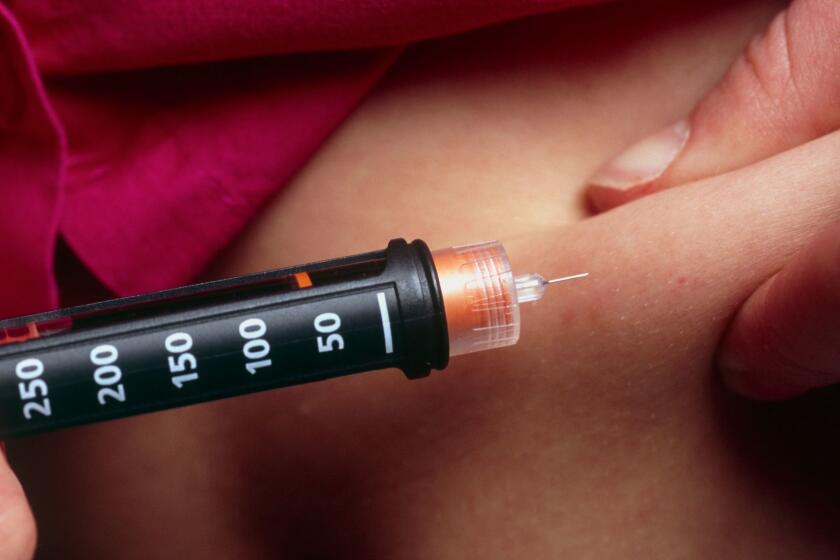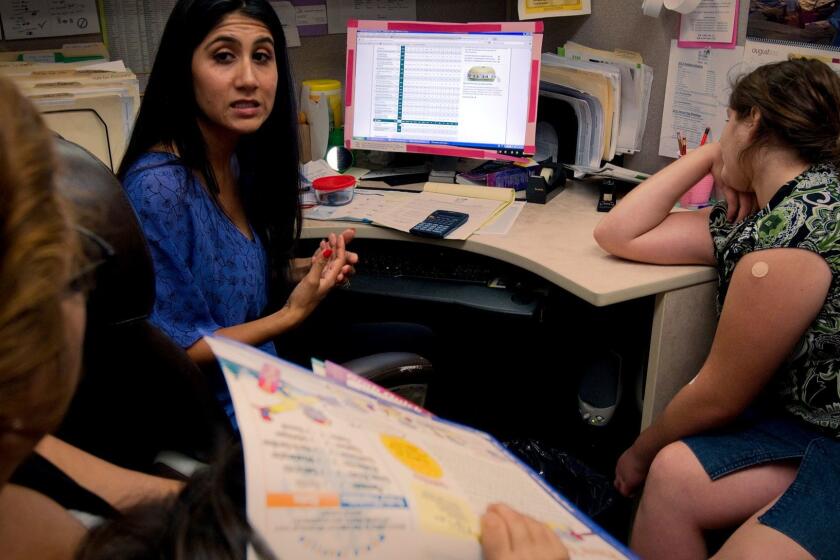Earlier diabetes tests recommended for overweight U.S. adults

- Share via
Overweight and obese Americans should start getting screened for diabetes earlier, at age 35 instead of 40, according to updated national guidelines published Tuesday.
The new advice stems from rising rates of both obesity and Type 2 diabetes, and research showing health benefits of prevention methods and early treatment. Three out of four U.S. adults is overweight or obese, which increases their chances for developing diabetes.
Among adults aged 18 and older, 14% already have diagnosed diabetes, and 33% have prediabetes. Screening is recommended up to age 70.
The guidance from the U.S. Preventive Services Task Force, an advisory group to the U.S. government, was published online in the Journal of the American Medical Assn. It updates the task force’s 2015 recommendations, and says even earlier screening should be considered for overweight or obese American Indians, Black people, Latinos and other groups with disproportionately high diabetes rates.
The American Diabetes Assn. says overweight or obese adults of any age should be screened.
Screening means blood tests to measure sugar levels and sometimes involves drinking a sugary liquid first. The new guidance suggests that people whose tests are normal could be screened every three years.
Type 2 diabetes impairs the body’s ability to use insulin to regulate blood sugar, leading to high levels that can cause heart problems, organ damage and blindness. Prediabetes means higher than normal blood sugar levels that can lead to full-blown diabetes.
Type 2 diabetes incidence has increased in recent years, along with obesity rates. A 2001-17 report in JAMA shows the rate nearly doubled in kids aged 10-19, jumping from 34 cases per 100,000 kids to 67 per 100,000.
The task force’s guidance says evidence shows diet and physical activity can prevent or delay diabetes in adults with prediabetes. The diabetes drug metformin has been shown to do the same but has not been approved for that use, the task force notes. The drug is not risk-free and some doctors oppose using it that way, noting that two-thirds of people with prediabetes never develop the disease.
An editorial published in JAMA says evidence shows that few U.S. adults with prediabetes are referred to diabetes prevention or weight-loss programs that could help them avoid diabetes and its complications. It calls for a broader range of effective prevention programs that are covered by insurance and accessible to people who need them most.








